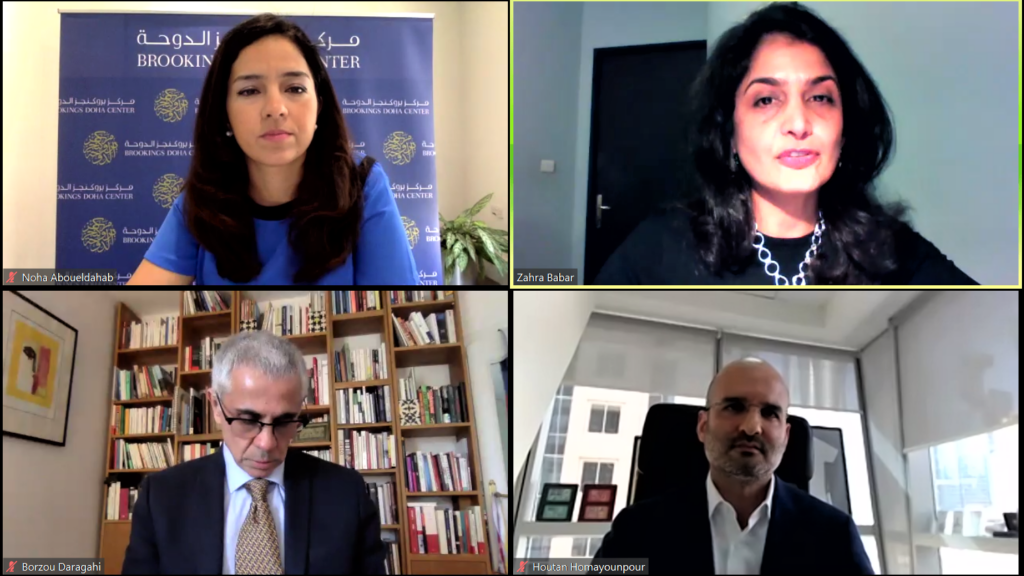Brookings Webinar: Covid-19 and Migrant Workers in the Gulf

Zahra Babar, Associate Director at the Center for International and Regional Studies (CIRS), Georgetown University in Qatar (GU-Q), took part in a Brookings Doha Center live webinar titled, “Covid-19 and Migrant Workers in the Gulf.” The discussion addressed the following questions: What role should international organizations play in advising governments on the pandemic and related labor issues? What have we learned about the interconnectedness of labor policies and public health policies? How will the pandemic change the way labor issues are addressed in the region?
Babar argued that there has not been a great deal of effort on the part of the GCC host states to mainstream labor migrants’ health needs into national health policy frameworks. Migrant inclusive health policies are essential and also good practice when such a large population of migrants as in the GCC are present. Estimates indicate that there are currently 150 million migrant workers around the world, and many migrants across the globe contend with similar constraints to their health. Despite this, there is no global commitment among states and international bodies that bind them to certain health outcomes for migrants. This lack of national health frameworks for migrants, as well as the absence of a cooperative transnational mechanism for managing migrants’ health, diminishes the capacity for states to rapidly roll out effective policies and initiatives that would specifically target migrant workers in the midst of a pandemic. However, the COVID-19 pandemic and how Gulf states manage it has the potential for creating a more hospitable set of circumstances within the Gulf for lower-income migrant workers’ health outcomes, which in turn could create a more favorable environment for migrant workers in the long term.
- Read more at the Gulf Times
- To read more on this topic, click here.